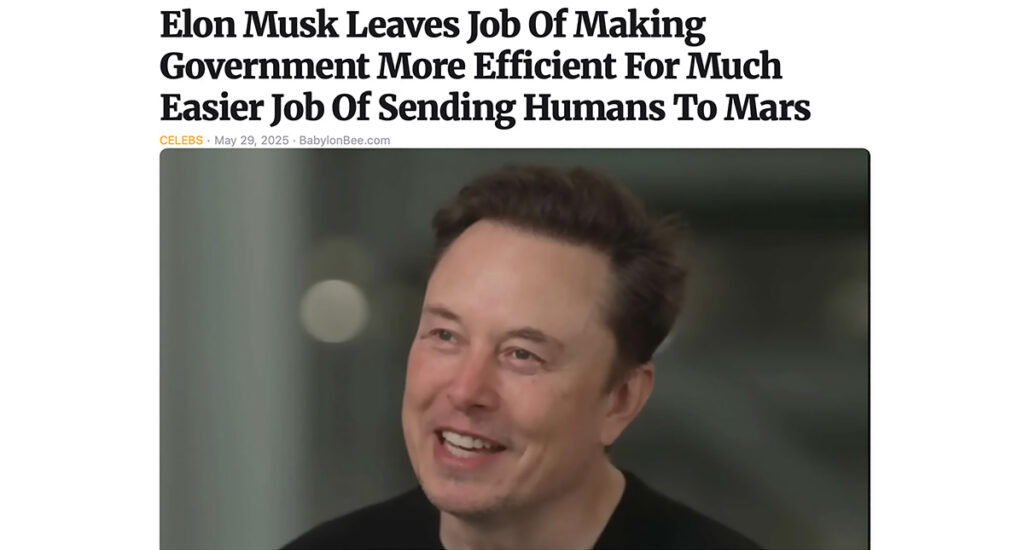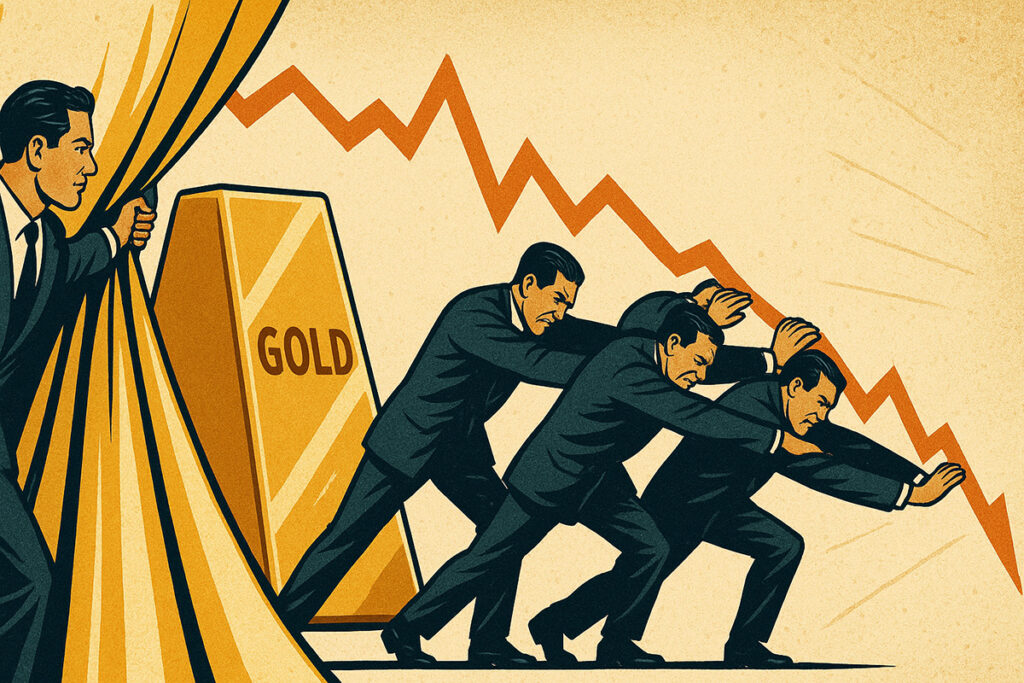Americans are left scratching their heads as the Department of Government Efficiency (DOGE) winds down while Trump and loyal Republicans push a massive spending bill through Congress.
In this week’s The Gold Spot, Scottsdale Bullion & Coin Founder Eric Sepanek and Precious Metals Advisor John Karow discuss the growing rift between billionaires and the administration, the extent to which the GOP bill will add to the national debt, and the reasons behind stagnant gold prices despite record institutional demand.
Elon Musk Slams GOP Mega Bill
It took less than three days for former DOGE head Elon Musk to publicly criticize President Trump’s signature legislation following the official end of his tenure as a special government employee.
In a scathing post on X, Musk denounced the One Big Beautiful Bill Act as a “disgusting abomination” of “pork-filled Congressional spending.”
I’m sorry, but I just can’t stand it anymore.
This massive, outrageous, pork-filled Congressional spending bill is a disgusting abomination.
Shame on those who voted for it: you know you did wrong. You know it.
— Elon Musk (@elonmusk) June 3, 2025
His remarks come just as the federal government begins submitting DOGE’s proposed savings for Congressional review. The potential cuts account for approximately $10 billion in “waste, fraud, and abuse”—less than 0.01% of the group’s ambitious $1 trillion target, but a fiscally responsible step forward nonetheless.
According to the latest projections from the Congressional Budget Office (CBO), Trump’s tax cut bill is expected to add $2.3 trillion to the US national debt over the next decade, resulting in an alarming debt-to-GDP ratio.
This would effectively erase the impact of DOGE’s cost-cutting efforts, which have come at a significant personal expense to Musk, whose net worth has declined by 30% since its peak in December 2024.
Cost Cutters vs Pork Pushers

A hilarious headline from The Babylon Bee—the conservative answer to The Onion—perfectly summed up the struggle: “Elon Musk Leaves Job Of Making Government More Efficient For Much Easier Job Of Sending Humans To Mars.” That joke resonates more than you might think. According to NASA estimates, the US national debt could fund 72 manned, long-term round trips to Mars.
Although DOGE is one of the most aggressive cost-cutting operations ever deployed by the US government, it’s running up against the same profligate politicians stalling any real progress.
Even within the so-called fiscally conservative party, many members of Congress seem more focused on winning reelection, boosting donations, or making headlines than on swallowing a tough cost-cutting pill.
This is the entrenched bureaucracy, the politicians doing what they always do. It’s like punching a sponge. They keep coming back, and they’re buying votes. They’re buying popularity.–
US Treasury Secretary Scott Bessent, who’s had the unenviable job of trying to convince Americans that bad policy is somehow good economics, has claimed the bill will actually save money in the long run, a claim that’s been met with tremendous pushback and skepticism.
The tension between entrenched politicians and genuinely concerned Americans boiled over in a physical confrontation between Bessent and Musk—one witness described it as “West Wing WWE.”
Jamie Dimon Sounds the Alarm…Again
The CEO of JPMorgan Chase has long been a vocal critic of federal overspending and one of the most outspoken advocates for fiscal responsibility in addressing the growing national debt crisis. For investors, Jamie Dimon making headlines again is usually a sign that something serious is going wrong in Washington.
Speaking at the Reagan National Economic Forum, the billionaire banker turned his focus to the bond market, warning it could “crack” under the weight of a $36 trillion—and climbing—national debt. Unless the government takes immediate, dramatic action to rein in spending and boost revenue, Dimon cautioned:
“You’re going to see a crack in the bond market. I’m telling you this is going to happen. And you’re going to panic.”
Standing firm with Elon Musk, Dimon also took aim at President Trump and the GOP’s omnibus bill, warning that it could severely undermine the nation’s long-term fiscal health.
You look at the numbers, and we keep spending money we don’t have. And at some point, our creditors are going to pull the plug.–
Behind the Curtain: Why Big Banks Are Suppressing Gold Prices

With gold demand surging, many investors are asking the obvious question: why aren’t prices keeping pace?
Over the past few weeks, the gold spot price has hovered around the $3,200 an ounce mark, bouncing back and forth without any decisive breakout in either direction.
This subdued price action does not indicate weakening demand. Rather, it may reflect a coordinated effort by sovereign wealth funds, central banks, and megabanks—the major players in the gold market—who are striving to keep gold prices suppressed so they can continue accumulating gold bullion at lower levels.
These institutions also profit from the trading volume itself, giving them even more incentive to slow price momentum while quietly stacking tons of the precious metal. Still, retail investors shouldn’t assume this sideways movement will last forever. Rising retail interest and rapidly shifting market conditions could send gold prices soaring to new highs at any moment.
“At some point, I think the free market is going to regain control of the marketplace, and we'll see gold prices go up.”
Why is gold standing still?
The yellow metal might be taking a temporary breather, but some experts are already calling for $5,000 gold prices. In the wake of unprecedented debt levels and a seismic global economic shift, the precious metal is rising as a cornerstone of the new financial order.
Our latest report, Gold Rush 2.0: A New Era in the Global Monetary Order, explores how the metal is retaking the mantle as the foundation of economic stability. CLICK HERE TO READ NOW!
Question or Comments?
If you have any questions about today’s topics or want to see us discuss something specific in a future The Gold Spot episode, please add them here.
Comment




Questions or Comments?
"*" indicates required fields